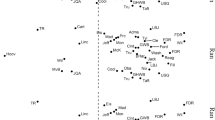
Overview
Access this book
Tax calculation will be finalised at checkout
Other ways to access
About this book
Similar content being viewed by others
Keywords
Table of contents (11 chapters)
-
Front Matter
-
Introduction
-
Theory
-
Front Matter
-
-
Contributions
-
Front Matter
-
-
Back Matter
Authors and Affiliations
Bibliographic Information
Book Title: Congressman, Constituents, and Contributors
Book Subtitle: Determinants of Roll Call Voting in the House of Representatives
Authors: James B. Kau, Paul H. Rubin
DOI: https://doi.org/10.1007/978-94-017-1139-5
Publisher: Springer Dordrecht
-
eBook Packages: Springer Book Archive
Copyright Information: Springer Science+Business Media Dordrecht 1982
Hardcover ISBN: 978-0-89838-070-5Published: 31 October 1981
Softcover ISBN: 978-90-481-5810-2Published: 01 December 2010
eBook ISBN: 978-94-017-1139-5Published: 11 November 2013
Edition Number: 1
Number of Pages: X, 160
Topics: Political Science



